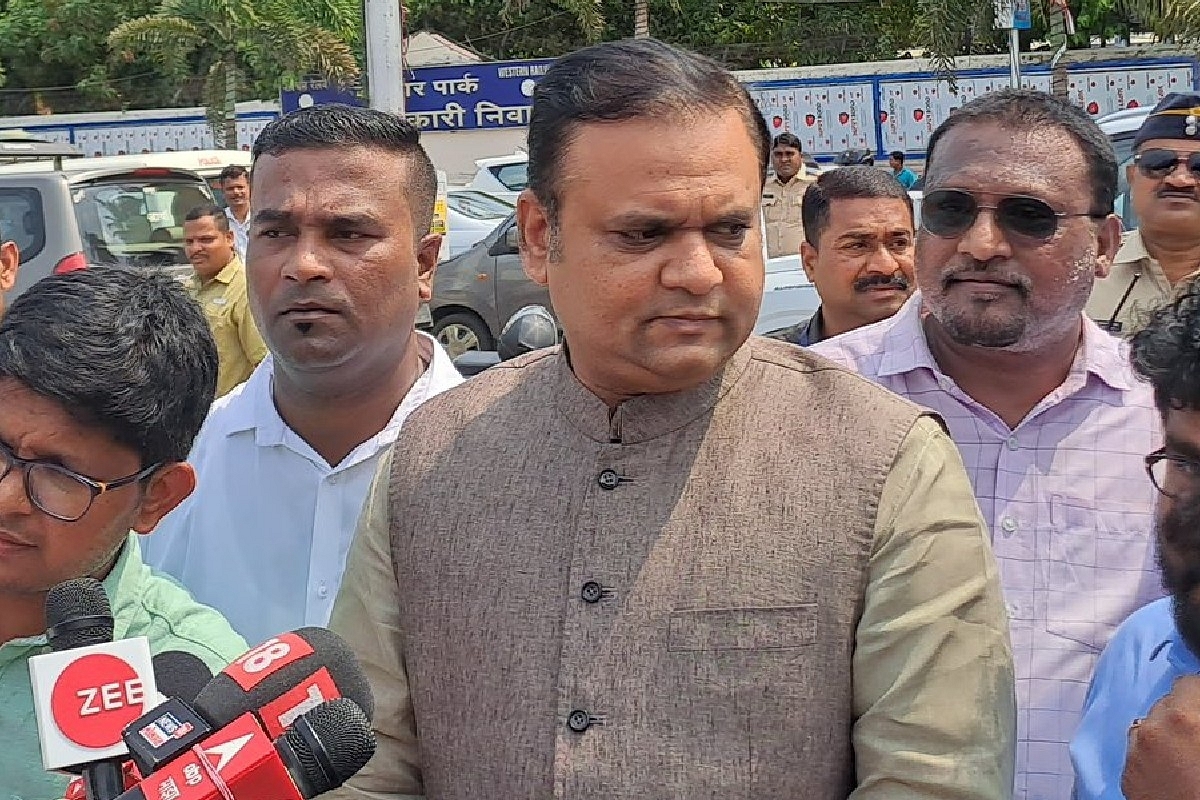News Brief
Maharashtra Speaker Prepones Hearing Of Shiv Sena MLAs' Disqualification Pleas; Here's What Happened Till Now

Rahul Narwekar
Maharashtra state assembly speaker Rahul Narwekar rescheduled the disqualification hearing for Shiv Sena MLAs from Friday to Thursday (12 October), Indian Express reported. Narwekar explained on Wednesday that the change was due to an invitation to attend a meeting of presiding officers of G20 nations in Delhi on Friday.
In response to criticism for the perceived delay, Narwekar clarified that the hearing was moved a day earlier, not postponed, emphasising his commitment to a prompt decision. He dismissed accusations of intentional delay and affirmed his adherence to the established rules in the decision-making process.
On Thursday, Narwekar is expected to issue an order regarding the consolidation of disqualification petitions. During the previous hearing, Shiv Sena (UBT) had requested that all petitions be combined for a joint hearing, while the Shinde faction opposed, advocating for separate hearings due to differing case natures.
In late September, Narwekar outlined the timeline for disqualification hearings, scheduled to commence on 13 October. The Shiv Sena (UBT) raised objections, citing a lack of clarity on the duration of the hearing process. While the order specified proceedings until 23 November, the final decision date remained unspecified.
Sena (UBT) leader Anil Parab urged a resolution within a month and expressed the party's intention to request the Supreme Court's directives to expedite the hearings during the next session.
Narwekar underscored that the Supreme Court would only intervene in legislative decisions if they were deemed unconstitutional or violated established laws. This response comes as a reaction to petitions seeking the disqualification of Shiv Sena MLAs who separated from the Uddhav Thackeray camp in June of the previous year.
Recently, the Supreme Court decided to entertain a petition from the Nationalist Congress Party (NCP) faction led by Sharad Pawar which seeks directives to the Maharashtra assembly speaker for a timely resolution of disqualification petitions pending against a group of rebel legislators, including Maharashtra's deputy Chief Minister, Ajit Pawar.
The hearing is scheduled for 13 October. Chief Justice of India, DY Chandrachud, acknowledged that this petition should be heard alongside a similar plea demanding swift adjudication of disqualification petitions against Maharashtra CM Eknath Shinde and the MLAs who supported him during the rebellion against Uddhav Thackeray in June last year.
The internal split within the Shiv Sena led to the downfall of the Thackeray-led Maha Vikas Aghadi government. Subsequently, the breakaway faction, led by Shinde, formed a new government in collaboration with the BJP.
After 39 MLAs, including Shinde, broke away from the original party, both factions filed disqualification pleas against each other, as reported by PTI.
Narwekar stressed the equality of the legislature, judiciary, and executive branches, emphasising that no single branch holds authority over the others and underscoring the importance of constitutional discipline.
Previously, the Supreme Court directed Narwekar to establish a timeline for adjudicating disqualification petitions against Chief Minister Eknath Shinde and the Shiv Sena MLAs loyal to him, expressing concern over the perceived delay in addressing these pleas.
Responding to allegations against his office regarding the delay in hearing petitions against 16 Shiv Sena MLAs, Narwekar reiterated that allegations made outside the legislative House would not be taken seriously, and he affirmed his commitment to resisting external pressure.
He emphasised the significance of upholding the Constitution and the Disqualification of Members on the Grounds of Defection Rules of 1986 in making decisions related to the disqualification of members.
Support Swarajya's 50 Ground Reports Project & Sponsor A Story
Every general election Swarajya does a 50 ground reports project.
Aimed only at serious readers and those who appreciate the nuances of political undercurrents, the project provides a sense of India's electoral landscape. As you know, these reports are produced after considerable investment of travel, time and effort on the ground.
This time too we've kicked off the project in style and have covered over 30 constituencies already. If you're someone who appreciates such work and have enjoyed our coverage please consider sponsoring a ground report for just Rs 2999 to Rs 19,999 - it goes a long way in helping us produce more quality reportage.
You can also back this project by becoming a subscriber for as little as Rs 999 - so do click on this links and choose a plan that suits you and back us.
Click below to contribute.
Latest